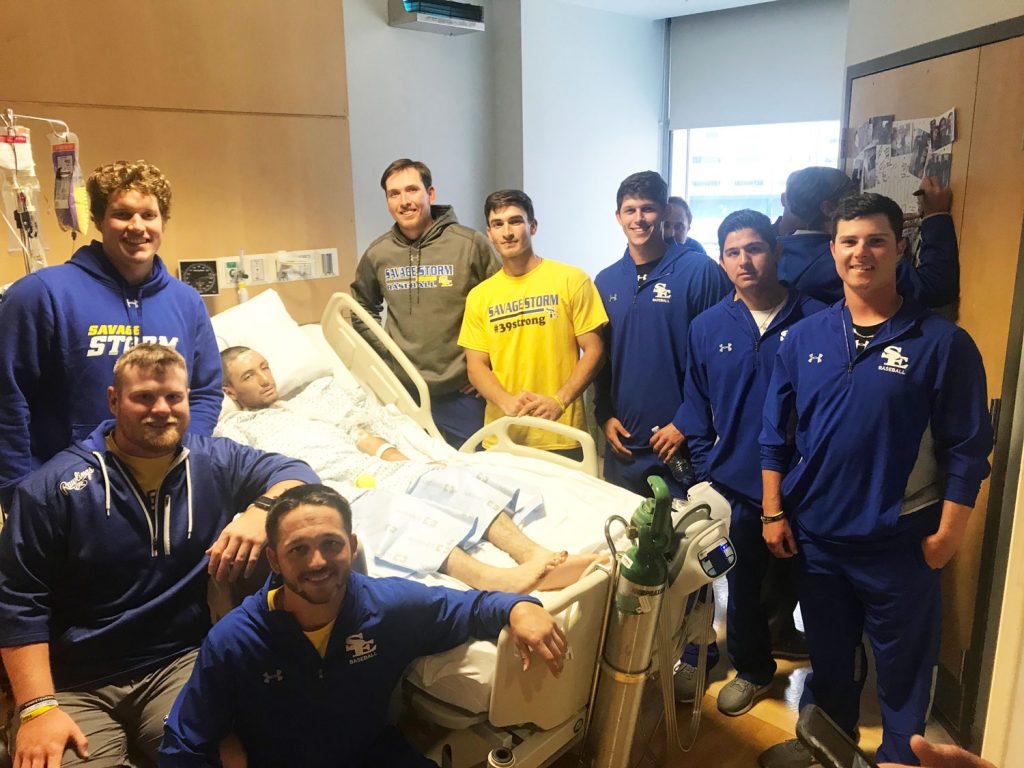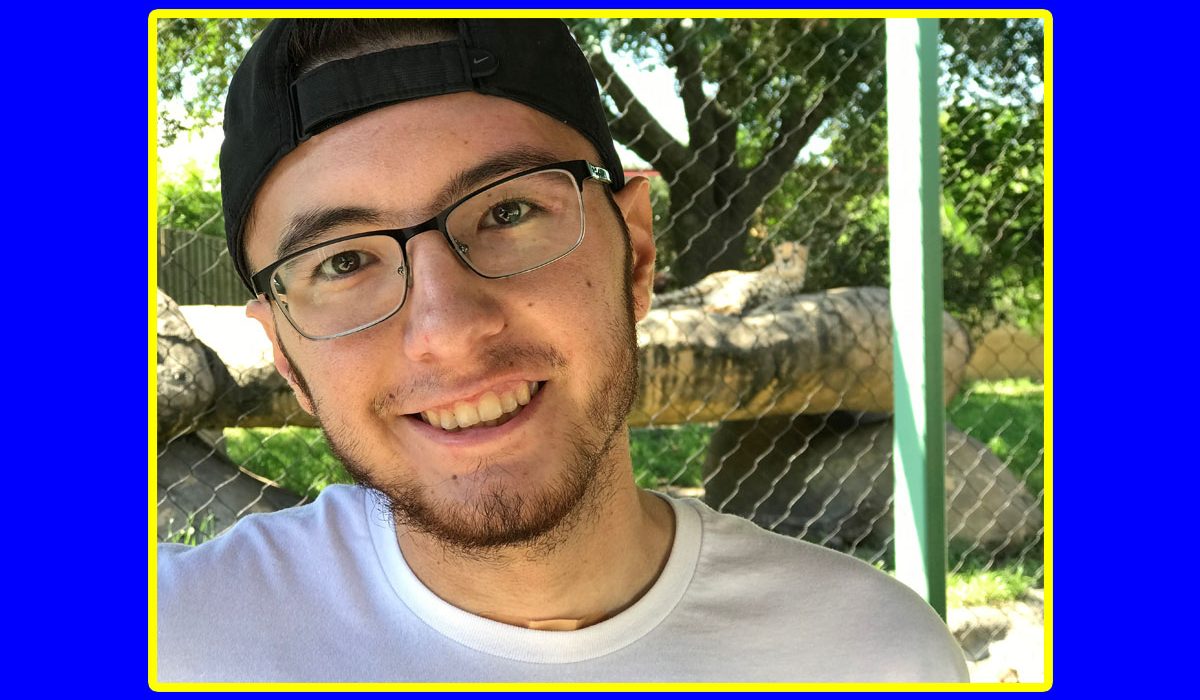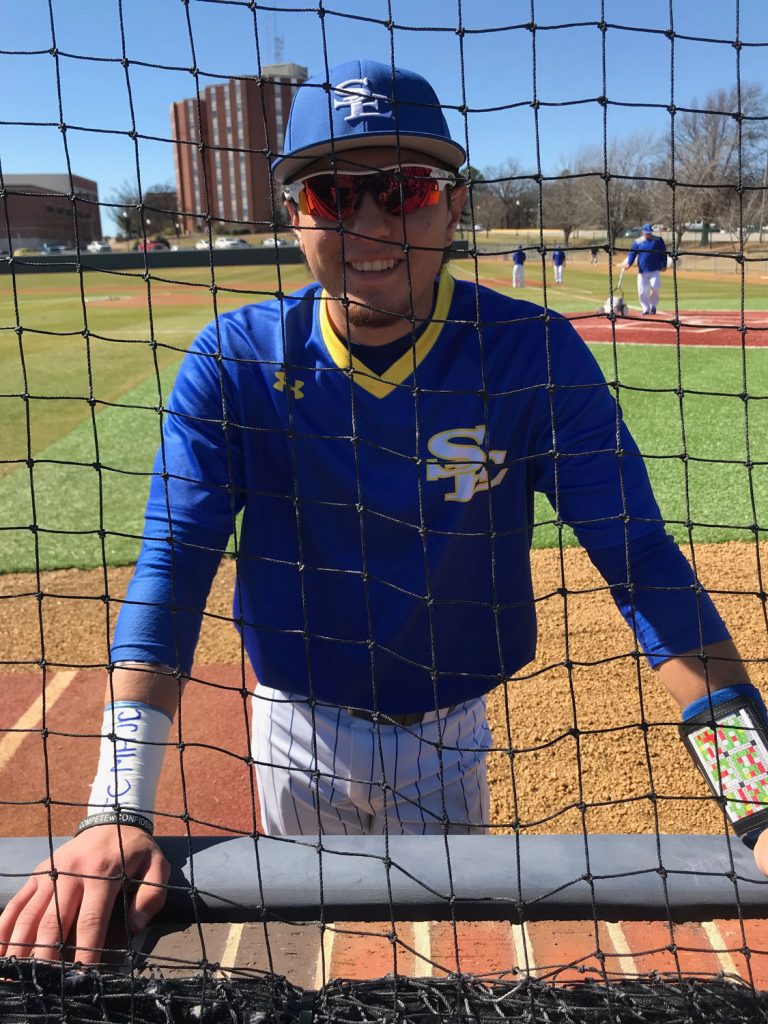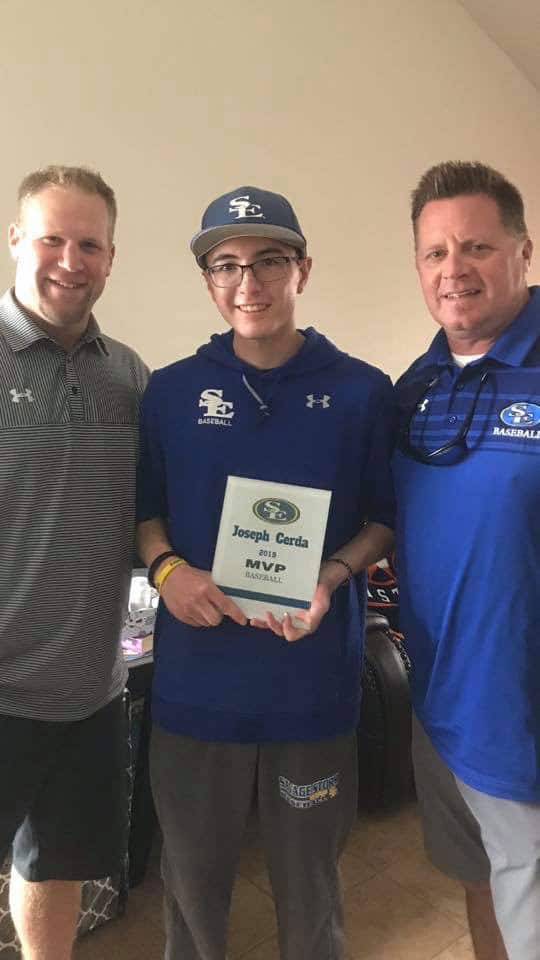By Joey McWilliams
“Whole teams came and countless people were reaching out to us and offering up prayer. And I have no doubt, that’s why he is where he is right now.”

Sports presented by Indian Nation Wholesale.
The spring has been long for the Cerda family, but summer time is coming in with promise of brighter days ahead.
Southeastern baseball player Joseph Cerda was released from TIRR Memorial Hermann hospital in Houston on May 17 to head back home with his family to San Antonio. Cerda spent two months in hospitals in Arkansas and Texas, but walked out on his own last week in the care of his family that has been with him for the entirety of this difficult journey.
Cerda expressed his gratitude to so many who have been lifting him up during this time.
“Thank you to everybody who helped and who prayed for me,” Cerda said. “It’s nice to be with family. Thank you for praying.”
It has been a time of victories and setbacks for Cerda and his family since a hit-and-run incident nearly took his life in Monticello, Ark. on Mar. 16.
His father, Joseph Cerda, Sr., got the news that night from his home in San Antonio. There were no flights readily available to get the family there, so they quickly drove to Arkansas. He said he was thankful for the ones who were there immediately.
“At the scene, he wasn’t responsive, and luckily his teammates and some people were there,” Cerda Sr. said. “I don’t what they did exactly and honestly, I’m thinking God was present with him. One of his friends was there and pretty much held his head a certain way, which I guess cleared his airway allowed him to start breathing.
From there, Joseph was taken to Drew Memorial in Monticello, but because of the severity of his injuries, he had to be life-flighted to the Level I trauma center in Arkansas at the University of Arkansas Medical Sciences in Little Rock.
“His injuries were very serious,” Cerda Sr. said. “To put it into perspective, the life flight person said that it is less than the fingers on his hand the amount of times he’s seen somebody taken into surgery as fast as he was. They didn’t even do any evaluation, they just had to get him there because of the internal injuries and blood loss. He had some blood transfusions on the flight over there.
“The University of Arkansas Medical Sciences did some miracles, honestly, because they got him there and they did immediate surgery.”
Joseph was unconscious for a couple of weeks following that. Both of his lungs were collapsed and his spleen had to be removed. He had damage to his kidneys, liver, stomach and intestines, and his diaphragm had ruptured. He also had skull fractures and orbital fractures around his left eye.
The father said he had been made ready for the worst when he arrived.
“The doctors prepared us, you know, ” Cerda said. “He was just in really bad shape. He doesn’t remember any of this and I’m glad. He had a very serious traumatic brain injury.
“They had taken him off of everything. There was a machine to help him breathe. Because of the severity of his head injuries, they thought that, you know…
“So when they did (take him off), he was able to breathe on his own. They saw some alertness, and were like, ‘Oh wow!’ And after that, he progressively started healing.”
Cerda Sr. said his son was unresponsive for several days, but then one day he started squeezing the family’s hands. And not long after, he opened his eyes.
“It just progressed from there,” Cerda Sr. said. “He still had a lot of issues, though, because the part of his brain that was injured regulates memory, breathing, blood pressure, body temperature and all kinds of stuff, so they were giving him a lot of things for fever and blood pressure. Because of all the bleeds on the brain, he had what they call a post-traumatic stroke, because of the actual injury where his head hit the ground.”

Whole teams came to visit Joseph Cerda in the hospital, including the Southeastern Savage Storm. Photo provided.
And the father said he knew the moment things were going to be alright.
“He had a speech therapist who was awesome, everyone at the UAMS was awesome. I can’t say thank you to them enough or tell you all the great things they did, but she pushed and made him do some things. And she brought him a tennis ball. He was intubated and couldn’t talk. He couldn’t write and it was hard for us to understand what was going on.
“But the one day I knew, we were talking and he got the ball. and I asked him if he knew a ball and baseball. He was a pitcher when he was younger. And the one thing he loved to throw, but hated to bat against, was the circle change. I asked him how to hold a baseball and he held it right.
“And then I wanted something a little more complex. And the way you hold a circle change is to make a circle with your thumb and index finger and hold the ball with your outer three fingers. I asked him to hold the circle change and he did it.
“And I asked him how to hold a slider and he remembers the grips. And I knew that he was in there somewhere and that was one of the greatest things!
“One of his doctors played baseball at Johns Hopkins, and another played at Rice and I think his physical therapist was a pitcher for Louisiana Tech, so I ran in to them and told them and they ran in and saw him and said, ‘Hey, show me this and show me that,’ and he did. So we went out and bought him a baseball. And after that, it just seemed to go up and up and up.”
Soon after, Joseph was moved from ICU to another room in UAMS and then in two weeks was headed to TIRR Memorial Hermann hospital in Houston, billed as the No. 2 rehabilitative hospital in the nation, where Arizona senator Gabby Giffords and Buffalo Bills’ tight end Kevin Everett has been treated. But there was another setback upon arrival.
“When we got there on Apr. 3 – his birthday is Apr. 4 – he got sick,” Cerda Sr. said. “On his birthday, his fever spiked to 107 and he got septic and had pneumonia and they discovered a pulmonary embolism in his lung and a blood clot in his leg, just from being immobile for so long, so he went back to ICU.
“He was on heavy antibiotics for a couple of weeks and there are of course heavy complications, and it was just an ordeal. But baseball teams came to visit him, like Northwestern, Monticello, Southeastern – whole teams came and countless people reaching out to us and offering up prayer.
“And I have no doubt, that’s why he is where he is right now.”
Out of ICU and awake, Jospeh started his rehab at TIRR. The left side of his body was still weaker at that point, but it was moving. With the trach tube gone now, he also was able to speak.
And on May 17, Joseph walked out of TIRR on his own.
The family is now back in San Antonio.
“He is with us in the evenings and on the weekends, but he has therapy Monday through Friday from 9 a.m. to 3 p.m.,” Cerda Sr. said. “He still gets physical, speech and occupational therapy and some counseling.
“He still has to have some reconstructive surgery for the fractures in his face. Because of the pulmonary embolism, that’s one of the scarier things, he’s on some blood thinners, so we have medical alert bracelets and we’ve made him aware of everything that is going on. But every day he is getting better, he’s getting stronger, he walking, he’s out, he’s eating, he’s interacting. He’s doing really, really well.
“There are times it’s like nothing happened. This morning, we were eating breakfast and talking and joking and he was trying to wink with his left eye and we were making fun of him and it was one of those things where you forgot about everything for a second and that’s awesome.
“He has tough moments, he’ll get irritable or tired, some of the effects of the close head injury, and still has a little unsteady gait because his left side is still a little weaker and his right side compensates and we’re trying to get him to use his left side more in balance, but he’s getting better every single day.
Joseph was named the MVP this season for the Southeastern baseball team and Storm coach Zach Crabtree made the trip to Texas to present the award. He also graduated with his degree in exercise and sport science from Southeastern, but wasn’t able to walk. The family is hoping to be able to make the trip to Durant in December to officially walk across the stage.
“We want to say, ‘Thank You’ to everyone who has prayed and given support,” Cerda Sr. said. There has been so much from people we don’t know, from Durant, from Arkansas, from people here at home. Not that it was easy, but it would have been some much more difficult without that. Just keep praying. It’s awesome.”
And the father said his family is stronger through it all.
“Joseph wears a cross that he has had since he was about 9 years old. It’s been blessed by our priest.
“He was thrown 176 feet from the initial impact. His head and body hit the road and his necklace was busted and everything fell off. There was no way it should have been there, but the cross from his necklace was on his heart, on his chest – it stayed there.
“Our faith is stronger because of it and as medical miracles go, I don’t think it would have been possible without prayer.”




